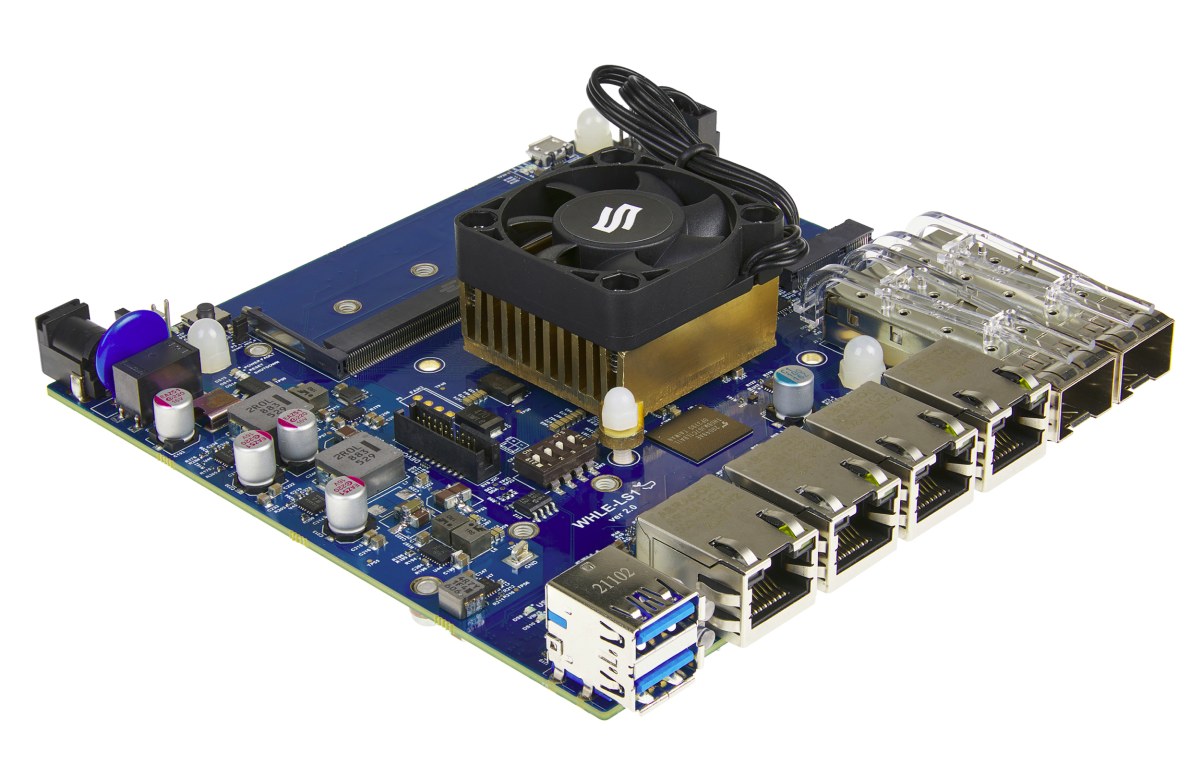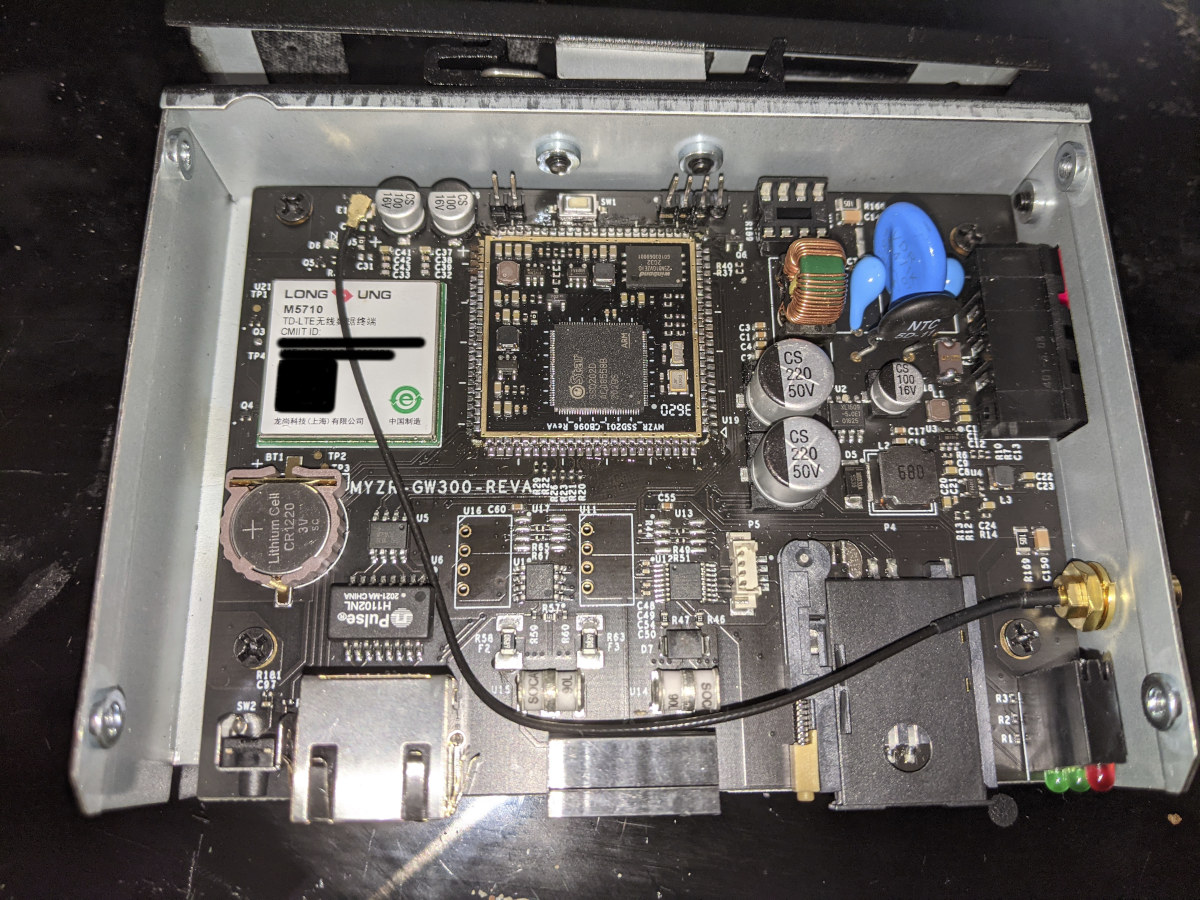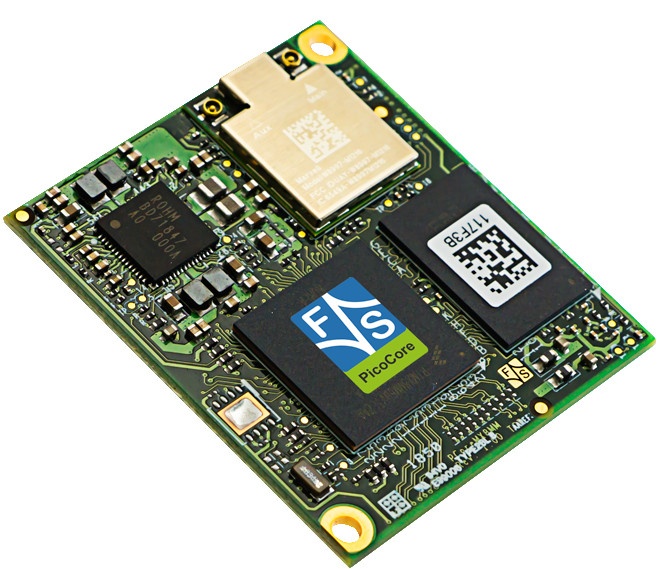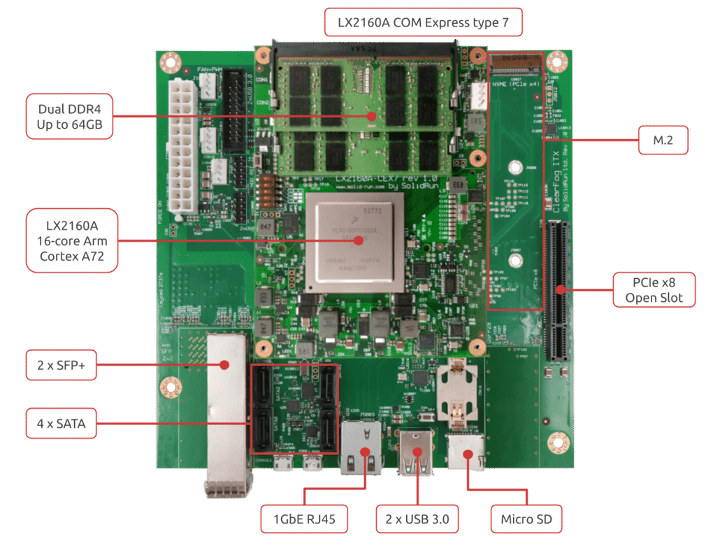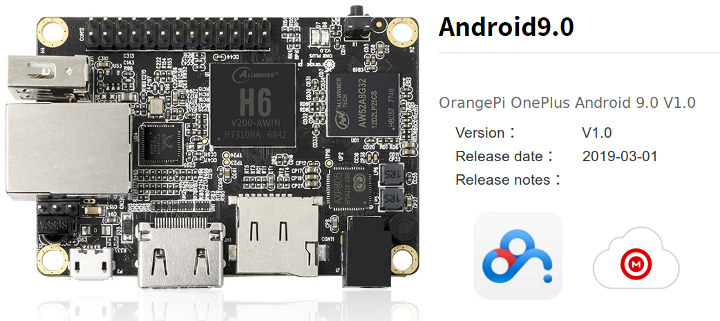The Embedded Open Source Summit 2024 (EOSS 2024) will take place on April 16-18 and the Linux Foundation has already announced the schedule with conference sessions, lightning talks, and birds of a feather (BoF) sessions covering embedded Linux, Zephyr OS, and real-time (RT) Linux. While I won’t be attending in person, I still find it interesting to check out the schedule as we may learn more about the current status of embedded Linux. So I’ve created my own little virtual schedule out of the available talks. Tuesday, April 16 – Day 1, Embedded Open Source Summit 2024 9:05 – 9:45 – No, It’s (Still) Never Too Late to Upstream Your Legacy Linux-Based Platforms by Neil Armstrong, Linaro Nearly 7 years ago, Neil already spoke about this subject in Berlin, and it’s still very true. Do you maintain or used to maintain a Linux-based board or SoC off-tree? Then there are […]
Conclusive Engineering WHLE-LS1 networking SBC offers 4x GbE, 2x 10GbE SFP+ cages
Conclusive Engineering WHLE-LS1 is a networking SBC powered by a choice of NXP Layerscape LS1xx8A Cortex-A72 or Cortex-A53 communication processors with four Gigabit Ethernet ports, two SFP+ cages capable of up to 10Gbps data rates. The board also features one SO-DIMM socket for up to 32GB DDR4, up to 64GB eMMC flash, M.2 PCIe sockets for NVMe SSDs, USB 3.0 host and USB 2.0 device ports, an RTC with backup battery, as well as serial and JTAG debug interfaces. WHLE-LS1 specifications: SoC (one or the other) WHLE-LS1026A – NXP Layerscape LS1026A 2x Arm Cortex-A72 @ 1.8GHz with DPAA package processing engine WHLE-LS1046A – NXP Layerscape LS1046A 4x Arm Cortex-A72 @ 1.8GHz with DPAA package processing engine WHLE-LS1048A – NXP Layerscape LS1048A 4x Arm Cortex-A53 @ 1.6GHz with DPAA2 package processing engine WHLE-LS1088A – NXP Layerscape LS1088A 8x Arm Cortex-A53 @ 1.6GHz with DPAA2 package processing engine System Memory – 1x […]
Engicam PX30.Core SoM & devkit run Ubuntu 20.04 with mainline Linux
Linux 5.11 was released a few days ago, and it’s always interesting to check out the changelog to find new hardware platforms that support mainline Linux. One of those is Engicam PX30.Core SoM based on Rockchip PX30 quad-core Arm Cortex-A35 processor. Engicam also worked with Amarula Solutions to develop an Ubuntu 20.04 image with mainline Linux compatible with EDIMM 2.2 and CTouch 2.0 carrier boards for PX30.Core CPU module. Engicam PX30.Core SoM Specifications: SoC – RockChip PX30 quad-core Arm Cortex-A35 @ 1.2GHz with Mali-G31 MP2 GPU with support for OpenGL ES 1.1, 2.0, and 3.2, OpenCL 2.0, Vulkan VX 1.0, 1080p60 video encoding/decoding System Memory – Up to 2 GB DDR4 Storage – 4GB eMMC flash (other capacities on request) Audio – Audio codec on module SO-DIMM edge connector Display Interfaces – 24-bit Parallel RGB, 18/24-bit LVDS Camera interface – 4-lane MIPI-CSI for up to 8MP camera Audio – I2S […]
SigmaStar SSD201/SSD202 powered 4G LTE industrial gateway made to run mainline Linux
SigmaStar SSD201 is a dual-core Cortex-A7 processor with 64MB RAM onchip that is designed for smart HD displays. We’ve previously seen it in Industio 7-inch smart display running Linux, but if you want to modify anything you’d need sign an NDA before getting the SDK. Luckily there’s an open-source community named linux-chenxing that aims to bring mainline support to those low-cost SigmaStar processor to mainline, the same way linux-sunxi is working on Allwinner processors. Daniel Palmer noticed MYZR recently launched GW300 4G LTE industrial gateway with specifications that looked familiar. GW300 specifications from manufacturer’s website: Processor – Arm Cortex-A7 dual-core processor @ 1.2GHz Memory – 64MB RAM Storage – 128MByte Flash Connectivity – Ethernet and 4G LTE with high-gain antenna Serial – RS485/ RS232 via 5-pin terminal block Misc – RTC Power Supply – 12V to 24V DC input Dimensions – 127.7 x 87.5 x 30 mm Temperature Range – […]
PicoCore MX8MN is a Tiny NXP i.MX 8M Nano Computer-on-Module
The PicoCore MX8MN Nano carries the NXP i.MX 8M Nano F&S Elektronik Systeme has announced the development of the smallest i.MX 8M based CoM yet: the PicoCore MX8MN Nano. Previously we had reported on the Congatec Conga-SMX8 Nano which was a fairly small CoM compliant with SMARC 2.0 standard. The PicoCore MX8MN is based on the NXP i.MX 8M Nano CPU with 1 to 4 Arm Cortex-A53 cores and a Cortex-M7 real-time core. The Nano is set to carry up to 8GB RAM and 32 GB eMMC, with optional WiFI/BT and support for -40º C to 85º C temperature ranges. Similar to Predecessor The PicoCore MX8MN Nano is very similar in structure to the PicoCore MX8MM Mini CoM, but with a different i.MX 8M Mini processor featuring the same Arm Cortex-A53 cores, but the Cortex M4 real-time core is changed to a more powerful Cortex-M7 core in the MX8MN Nano. […]
Pre-production HoneyComb LX2K 16-Core Mini ITX Arm Workstation is up for pre-order for $550
A few months ago, we wrote that SolidRun was working on ClearFog ITX workstation with an NXP LX2160A 16-core Arm Cortex-A72 processor, support for up to 64GB RAM, and a motherboard following the mini-ITX form factor that would make it an ideal platform as an Arm developer platform. Since then the company split the project into two parts: the ClearFog CX LX2K mini-ITX board will focus on networking application, while HoneyComb LX2K has had some of the networking stripped to keep the cost in check for developers planning to use the mini-ITX board as an Arm workstation. Both boards use the exact same LX2160A COM Express module. HoneyComb LX2K specifications: COM Module – CEx7 LX2160A COM Express module with NXP LX2160A 16-core Arm Cortex A72 processor @ 2.2 GHz (2.0 GHz for pre-production developer board) System Memory – Up to 64GB DDR4 dual-channel memory up to 3200 Mpts via SO-DIMM […]
Embedded Linux Conference & Open Source Summit 2019 Schedule
In the last few years, I covered the Embedded Linux Conference and IoT Summit schedules since both were happening at the same time and in the same location. But the Linux Foundation have recently announced the Embedded Linux Conference will combine with the Open Source Summit, so the IoT Summit appears to have been phased out. The full schedule for the events taking place on August 21 – 23, 2019 at the Hilton San Diego Bayfront, USA, has also been released, so I’ll create a virtual schedule with some of the sessions most relevant to this blog. Wednesday August 21, 2019 11:30 – 12:05 – What’s New with U-Boot? by Simon Glass, Google LLC U-Boot is a widely used bootloader in embedded systems. Many users are unaware of the wide feature-set of U-Boot, particularly features added in the last few years. This talk aims to bring users (and prospective users) […]
Orange Pi Software Releases – Android 9.0 Firmware, Linux Source Code for RK3399 / MT6737
Shenzhen Xunlong Software is used to release many different variations of their Orange Pi boards, and more often than not they tend to launch their boards fairly early before the software is fully ready. Many of their boards get supported by the community thanks to Armbian, linux-sunxi, etc… but sometimes the company does release firmware or source code themselves, as they did in the last two days with Android 9.0 firmware for one of their Allwinner H6 board, and Linux source code for Orange Pi 4G-IoT and Orange Pi RK3399. Android 9.0 for Orange Pi One Plus Launched in 2017, Orange Pi One Plus was the very first Allwinner H6 SBC launched on the market, and supported Android 7.0 at the time. But following the release of Android 9.0 for Allwinner H6 TV boxes a few weeks ago, you can now also upgrade your Orange Pi One Plus to Android […]



